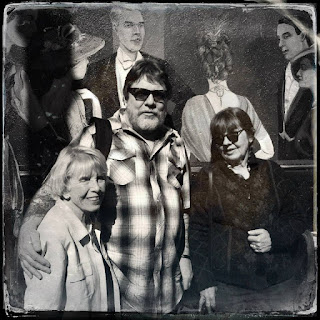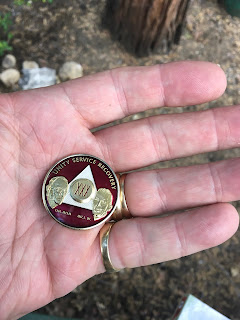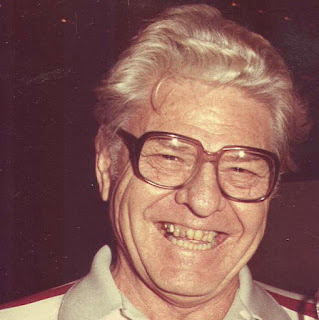Q: Bad Advice – Not everything works for everybody. Give us some examples of writing advice, given to you in good faith, which just didn’t work for you. Tell us why you think it didn’t work.
“What am I rebelling against? Whadda you got?” - That’s from Marlon Brando in The Wild Ones. Words young me lived by. I distrusted authority and advice sounded like rules to be broken. This allowed me to create inventive and award winning movie trailers in my early twenties. It also made learning tough.
I didn’t write anything worth reading until after I gave up on contempt prior to investigation. I still distrust authority, but I’m willing to listen to advice, then see if it helps or hurts the writing. I always reserve the right to toss it away, which doesn’t make it bad advice, just wrong for me and my process.
When my mother read my first screenplay, it was about youth, drugs and rock music in San Francisco. She gave me advice she’d read from an in flight magazine, “You should write about what you know.” Two problems, A, I knew a lot about the subject matter even if I wasn’t a good enough writer to capture it yet. And B, that advice is total crap, or at the least it’s overly simplistic. Time has allowed me to rethink it and state it as, “You should know about what you write. If you don’t, learn it.”
Want to write about the homeless and you have been lucky enough to never have been on the streets? Volunteer in a soup kitchen, and then spend a few days on skid row. Talk to people, no wait REWIND… Stop talking and listen to people. Every one of us wants to be heard and seen. It’s easy, start with, “Hi, I’m Josh, how’s your day going?” You’d be surprised how open people get once you reach out. Also I take back what I said about working in a soup kitchen. That’s too easy. Try lining up and eating lunch in one, without saying “I don’t really belong here, I’m a writer.”
Stepping out of your comfort zone is how you meet people you want to write about. When writing TRICKY I needed to learn about the LAPD. Walking into Parker Center the first time felt scary, entering the Death Star scary. My grandfather was a cop, but he never let that world into his home. My parents were activists, I was raised in the counter culture. As a teenager I committed petty and not so petty crimes. Two days ago a Highway Patrol car followed me up the mountain. I sweated bullets for ten miles. Uniforms freak me out at an animal level. And yet, I knew I needed to spend time with the LAPD if I was to write about them. Lectures by cops, cop camp, ride alongs are all good ways to find facts, but truth is easier accessed over coffee.
“Cool, but where do we go to meet criminals?” you ask. First, talk to your family and friends, you might be surprised at how many solid citizens have criminal pasts. My grandfather the cop? As a kid, he sold bootleg hooch to sailors on the pike. His 6th grade teacher said he’d spend the rest of his life behind bars, and he did, he retired as Chief of Corrections. Or, if your family is squeaky clean but you are lucky enough to be a sober alcoholic, they have these meetings where you’ll meet all kinds of folks. Some of us used to be criminals. Get to know us and we might even share how it felt.
However we do it, we need to break free of the notion that there is an us and them. Cops and robbers. Freaks and straights. There is only us on good and bad days. You are not your worst idea or your best. This isn’t an intellectual idea you can learn from a book or Google, it can only be learned hanging with people and getting to know them.
Moving on. Here is some other writing advice that chafed me, “Never start with a flashback.” Never, unless it works. Flashbacks are by nature problematic in that they can put a protective layer of time between the events and the reader. Get them right and they can be brilliant.
I heard an editor I respect once say, “Never have multiple POVs. Every time you change POV you go back to square one for the reader.” I didn’t yell from the audience “Bullshit.” I thought it, didn’t say it and that’s growth. In Jamie Mason’s brilliant Three Graves Full she changed POV almost every paragraph. Hell she even had a police dog’s POV. It works. It builds rhythm and tension and humor alternately.
That doesn’t mean the editor was wrong. We all aren’t Jamie Mason, so if we’re going to be switching our POVs we should do it with caution, run it by a reader we trust to tell us their true reaction. Notice I didn’t say a reader willing to tell THE truth. Writing is subjective, there is no one truth.
On the day of my wedding to Erika, my grandfather pulled me aside and told me, “You will have a happy marriage once you realize she’s right.” I could have taken this as a joke, or bitter cynicism, but my grandfather was a deep thinker and he planted thoughts inside jokes like zen koans. Years later I finally understood it. If I approach disagreements with Erika from the position of, “I know you’re right, but I don’t see it yet, explain it again please.” Then we are having a discussion not an argument.
Writing is easier than marriage. As the writer of record, I am the ultimate arbitrator of what gets published. This gives me the freedom to listen to anyone’s opinion. A publisher has the power to not publish the book if I don’t change it. An agent can drop me if I don’t take their advice. Readers may not flock to my work if I don’t listen to anyone's advice. All of these are consequences of my decisions. The reason I have the final word is I alone will be held accountable for the book.
The best writing advice I’ve ever been given came from Charlie Huston. We were sitting in an Atwater bar, I was going on about my book being nominated for some award. He listened for a bit then stopped me, “Enough, what are you working on now?” I must have looked hurt so he explained, “Awards are for things you already wrote. They’re in the rear view. The important stuff is in front of you.”
I think that’s also true for our disappointments. No one picked up your amazing MS, got it, sorry… But what are you working on now?




4 comments:
Yes! "Write what you know" must be the worst advice possible. Great post, Josh.
Love it - looking forward, what a great perspective with which to end a great post. Scratch that - what a great perspective to end a great post with.
[I'm crapping on the no ending with a preposition advice just a little, if that was unclear... although, it would be better if I just put the period after 'post,' huh?].
I'm halfway through TRICKY right now, so I can say whatever advice you decided to take was the right advice. The voice in my head keeps asking, "Who IS Cisco?" And, props to your grandfather!
Thanks all! Frank, very funny. S, the "who is Cisc?" had my agent texting me when I had 2/3ds done, she asked If I could tell her was he good bad, what. I told her she'd know as soon as I did.
Post a Comment